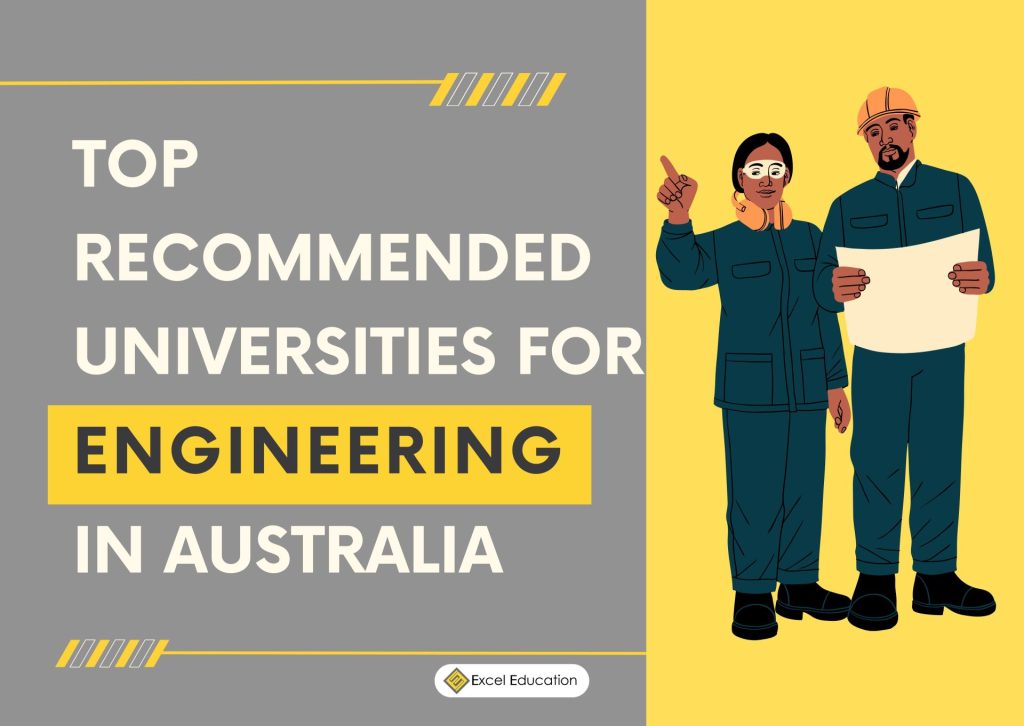
A world without Engineers is probably not the best one to live in. Without Engineering, there would not have been communication systems, transportation systems, or even the beloved smartphone. Engineering is the pioneer of modern life and society development. If you’re interested in getting involved with Engineering, keep on reading to find out some of the top recommended universities for Engineering in Australia to kickstart your Engineering journey!
What is Engineering?

In simple terms, Engineering is a field which makes things work. The core of Engineering is to create, innovate, and solve problems with the help of maths and science as tools. In a more elaborate sense, Engineering is the force which drives change and improvements in society for a better life.
Engineering is responsible for the chemical processes involved in creating toothpaste and producing fabrics. It is responsible for the cars we drive and the roads we use. Engineering is what enables your alarm to go off at the right time and it is what allows you to stay in touch with loved ones through phones as well as the games you find hard to put down. On the grounds of this, Engineering is very versatile with applications in almost every industry – healthcare, pharmaceuticals, manufacturing, construction, tech, you name it.
This aspect of Engineering provides employability where ultimately, you will improve the world. Not only that, in your Engineering studies, you would typically have a broad range of areas to specialise in. For instance, you can specialise in Civil Engineering, Computer Engineering, Aeronautical Engineering, among many other options.
Skills Required to Study Engineering

- Mathematical Aptitude
Engineering courses will use ample amounts of Mathematics which is exactly why mathematical aptitude will help you sail through your Engineering day-to-day studies. Algebra and Calculus are subjects you would have to face as they are crucial in solving Engineering problems.
- Digital Computational Competency
In Engineering, courses and subjects where you have to learn coding or programming is something you would definitely have to expect. On this account, digital competency is necessary in ensuring you can keep up with peers in an Engineering course.
- Data and Structural Analysis
Data and structural analysis is integral into the analytical aspect of Engineering where many aspects of an Engineering project are thoroughly examined for optimised results. This skill is crucial in driving meaningful and impactful outcomes throughout your Engineering journey.
- Test Method Development
Engineering industries centre on problem solving where testing is an integral aspect. Testing in labs during your Engineering studies may feel tedious but it is a great opportunity to learn and practice before you step into the professional field of Engineering.
- Educational Commitment
Engineering is a dynamic field where advancements are consistently generated. Hence, keeping committed and up to date with learning about new additions in the Engineering field is admirable and favourable.
Top 10 Highest Paid Engineers in Australia

Engineers solve some of society’s greatest challenges. Our future society is looking to be powered by renewable energy, have zero waste, overall emphasising sustainability in all aspects of life. This is precisely why ‘right now’ is a crucial time to become an Engineer.
Did you know that starting salaries for Engineers in Australia are among the highest for any university degree? According to PayScale, Perth, Brisbane, and Melbourne are the top three cities in Australia with the highest paid Engineers. In this section, let’s explore the top 10 highest paid Engineers in Australia. Compilation of salary reports is based on May 2024.
1. Mining Engineer
Mining Engineers evaluate, plan, and oversee mine construction. They design and specify methods and processes, labour usage, as well as equipment needed to extract minerals and ores from the earth. The reported annual average salary of a Mining Engineer in Australia ranges from AU$145,000 to AU$165,000, making the field of Mining Engineering one of the highest paying Engineering fields in Australia.
2. Petroleum Engineer
Petroleum Engineers plan, design, develop, and direct the Engineering aspects of locating and extracting petroleum or natural gas from the earth. They oversee drilling with the goal of achieving optimal integrated exploration. The average base annual salary for a Petroleum Engineer is AU$142,781.
3. Aerospace Engineer
Aerospace Engineers design, develop, and maintain aircrafts, spacecrafts, satellites, and missiles while generating new advancements in aviation, defence, and exploration. The annual average salary for Aerospace Engineers starts from AU$120,000 to $140,000.
4. Software Engineer
Software Engineers design, develop, test, install, and maintain software applications and systems. These systems can range from small scale desktop applications to massive global online platforms. The average annual salary of a Software Engineer in Australia ranges from AU$110,000 to AU$130,000.
5. Electrical Engineer
Electrical Engineers design, develop, install, and maintain electrical systems. Electrical Engineers may work in a variety of industries, including telecommunications, transport, IT, energy, and construction. The average annual salary of an Electrical Engineer in Australia ranges from $110,000 to $130,000.
6. Structural Engineer
Structural Engineers analyse and survey build sites to ensure suitability of the land before starting a construction project. They design, inspect, and test new structures as well as the materials used in their constructions alongside supervising its construction. The average annual salary of a Structural Engineer in Australia ranges from AU$100,000 to AU$120,000.
7. Civil Engineer
Civil Engineers plan, design, organise, and supervise construction projects and infrastructures. These can include the operation of dams, bridges, pipelines, gas and water supply schemes, sewerage systems, and airports. The average annual salary for a Civil Engineer in Australia ranges from AU$95,000 to AU$115,000.
8. Environmental Engineer
Environmental Engineers use core knowledge of the environment with Engineering to develop and create innovative solutions for a sustainable future. They are skilled to understand and solve issues relating to public health, environmental pollution, and sustainable development. The average annual salary of an Environmental Engineer in Australia ranges from AU$95,000 to AU$115,000.
9. Materials Engineer
Materials Engineers test and analyse properties of metals and other materials where they can be used in commercial applications or products. Materials Engineers can work in manufacturing, mining, laboratories, production plants, and many other industries. The average annual salary of a Materials Engineer in Australia ranges from AU$90,000 to AU$110,000.
10. Chemical Engineer
Chemical Engineers design and devise specifications for chemical process systems where they analyse the materials and processes to convert raw materials into useful commercial products such as clothes, food, and pharmaceuticals. Another one of the highest paying Engineer professions in Australia goes to Chemical Engineers, where the average annual salary for a Chemical Engineer in Australia ranges from AU$85,000 to AU$105,000.
How to be a Certified Engineer in Australia

First, complete SPM or equivalent examinations which enables your entry into a qualifying pre-university study programme.
Second, complete the qualifying pre-university programme while ensuring you pass minimum requirements to secure your spot in a Bachelor of Engineering programme in Australia.
Third, complete an accredited Bachelor of Engineering undergraduate programme which typically takes up to 4 years. Alternatively, you have the option to join a Diploma of Engineering for 8 to 12 months (depending on the type of programme and the institution it’s offered at) and gain entry into the second year of the Bachelor of Engineering undergraduate programme and with a duration of 3 years. At this step, it’s a good idea to decide on the type of Engineering you want to specialise in.
Next, obtain additional credentials. After a four-year accredited Bachelor of Engineering programme, you would typically work as a Graduate Engineer for 2-3 years before being able to practise as a Professional Engineer. After that, you can work towards becoming a Professional Engineer. Otherwise, you can register to become a Chartered Engineer only if you have more than 5 years of professional work experience. Regardless, certain Engineering specialisations call for postgraduate qualifications. This step is highly dependent on your Engineering goals and professional passions.
In order to practise as a certified registered Engineer in Australia, you should obtain the National Engineering Register (NER) credentials provided by Engineers Australia (EA).
Most Engineering occupations are under the Medium and Long-term Strategic Skills List (MLTSSL). Engineering professions under MLTSSL have the opportunity for migration to Australia such as via the 494 subclass visa (Skilled Employer Sponsored Regional (provisional). Keep in mind there are other visa subclasses that you may apply for.
When you are eligible for permanent residency after, for instance, holding visa 494 for 3 years, you can then apply for permanent residency visa such as subclass 189 (Skilled Independent) or subclass 190 (Skilled Nominated). The choice of visa may vary from occupation, eligibility, regional preference, and wish to acquire permanent residence.
General Entry Requirements to Study Engineering
Academic Entry
Do take note that most Engineering programmes have a Mathematics subject prerequisite. Depending on the Engineering specialisation, some would also require a Science subject prerequisite.
Academic Entry | Minimum Score |
STPM | CGPA 2.33 |
Matriculation | CGPA 2.60 |
A-Levels | Aggregate 7 (Best 3 Subjects i.e. CDD) |
UEC | GPA 2.20 |
IB Diploma | 25 |
Australian Matriculation (ATAR) | 70 |
Canadian Pre-University (CPU) | 67.5% |
Note: Universities may have different requirements. To learn more, get in touch with us!
English Language Entry Requirements
Entry Level | Minimum Score |
IELTS | 6.5 |
TOEFL | 79 |
Pearson Test of English (PTE) | 69 |
Note: Universities may have different requirements. To learn more, get in touch with us!
Top Recommended Universities for Engineering in Australia
1. University of Sydney (USYD)
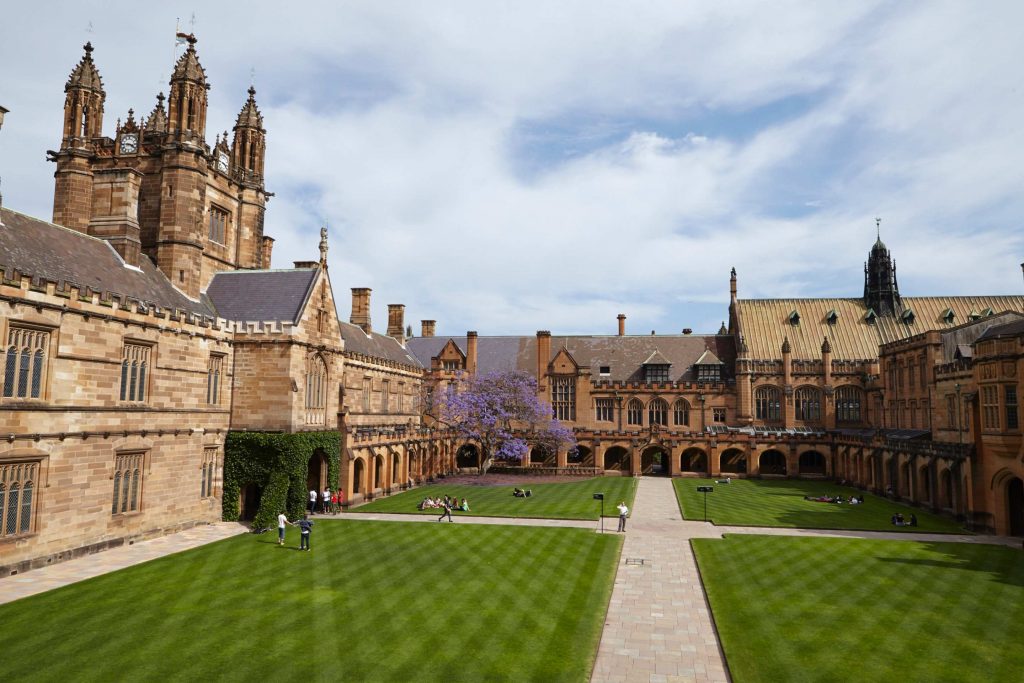
The University of Sydney, known as USYD, was founded in 1850. The University of Sydney was ranked 19th among universities globally in 2024 and is also a member of the Group of Eight (Go8) network, making it an internationally commendable study destination choice.
For the Engineering and Technology subject in 2024, the University of Sydney was awarded the third spot among all universities in Australia, fit for those wanting to pursue Engineering in Australia. Students will have access to cutting-edge Engineering technologies, hands-on learning experiences, Engineering student competitions, a number of Engineering clubs and societies, as well as various professional engagement activities.
Programme Offered | Bachelor of Engineering (Honours) Study Areas:
|
Duration | 4 Years |
Intake | February, July |
Indicative Fees (2024) | International Students: AU$224,000 |
Contact us right now for a free consultation if you’d like more details about the costs, the format of the programme, and the entry requirements!
2. University of Technology Sydney (UTS)
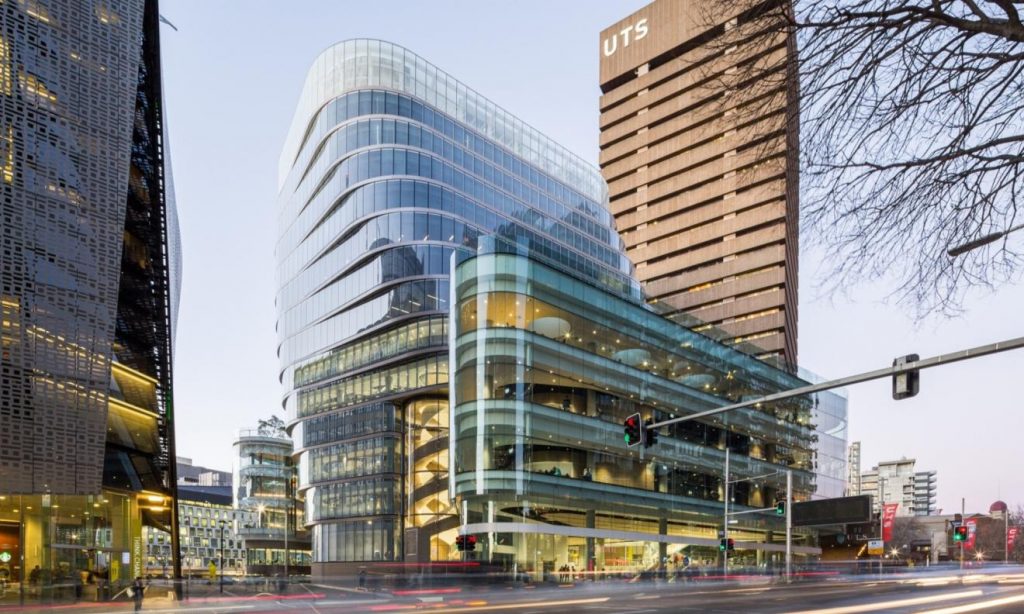
The University of Technology Sydney, abbreviated as UTS, is an acclaimed public higher education learning institution in Australia with history traced back to 1870. UTS is ranked among the top 100 of universities worldwide, marking their academic prominence and global impact.
In 2024, the University of Technology Sydney was ranked in the seventh place among Australian universities for the Engineering and Technology subject. UTS’ Engineering programmes offers industry-focused learning, work placements, community and case-based projects, overseas volunteering placements, on top of their reputation as an innovation precinct with modern teaching spaces and laboratories designed to inspire and support its students.
Programme Offered | Bachelor of Engineering (Honours) Major Options:
|
Duration | 4 Years |
Intake | February, July |
Indicative Fees (2024) | International Students: AU$216,612 |
Contact us right now for a free consultation if you’d like more details about the costs, the format of the programme, and the entry requirements!
3. University of Queensland (UQ)
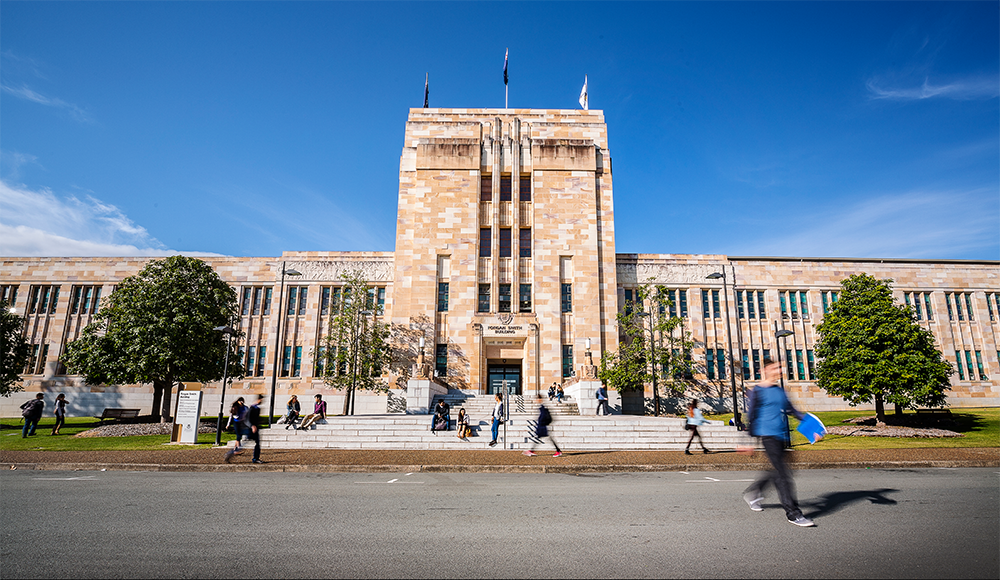
The University of Queensland, commonly referred to as UQ, is a prominent public research university with its main counterpart in Brisbane. The University of Queensland was established in 1909 with unwavering academic dedication awarding the university in the top 50 among universities worldwide for the year of 2024.
Additionally, the University of Queensland is in the fifth spot among Australian universities for the Engineering and Technology subject in 2024, suited for those wanting to academically pursue Engineering in Australia. The Bachelor of Engineering (Honours) programme at UQ provides accredited comprehensive curriculum, work placements, overseas studies, with six core Engineering specialisations to choose based on your personal interests.
Programme Offered | Bachelor of Engineering (Honours) Specialisation Options:
|
Duration | 4 Years |
Intake | February, July |
Indicative Fees (2024) | International Students: AU$204,800 |
Contact us right now for a free consultation if you’d like more details about the costs, the format of the programme, and the entry requirements!
4. Queensland University of Technology (QUT)
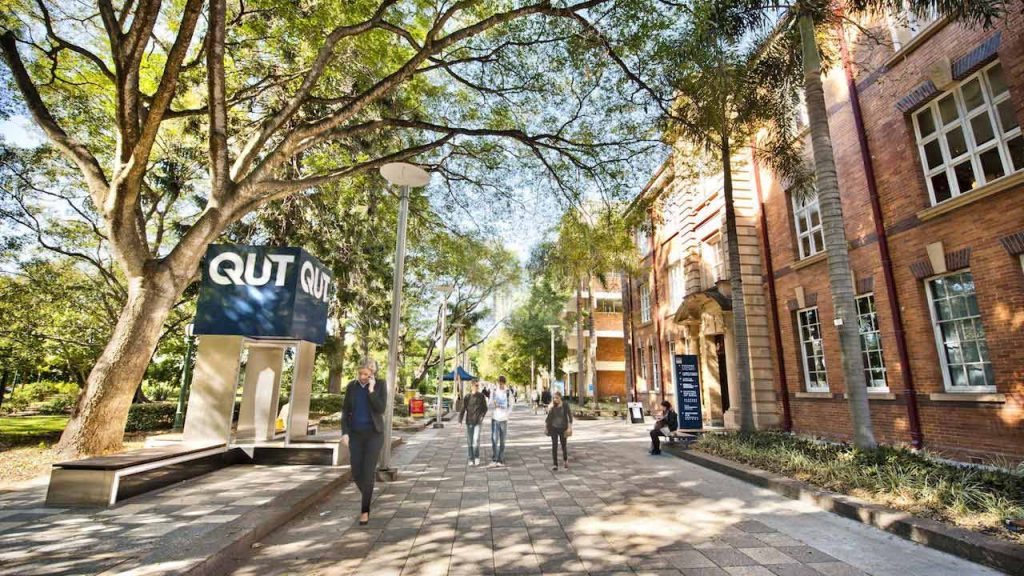
Queensland University of Technology, rather QUT, is a notable public tertiary learning institution with history dating back to 1849. Queensland University of Technology has made its mark in academia, proven through its rank in the top 15 among universities in Australia for the year of 2024.
What’s more, the Queensland University of Technology is in the eleventh spot amongst universities in Australia for the Engineering and Technology subject in 2024. QUT’s Engineering programme accommodates prospective Engineering students with an accredited practical approach to learning, opportunities for industry projects, and numerous student Engineering clubs alongside access to latest technologies and equipment in QUT’s advanced Engineering facilities.
Programme Offered | Bachelor of Engineering (Honours) Major Options:
|
Duration | 4 Years |
Intake | February, July |
Indicative Fees (2024) | International Students: AU$169,600 |
Contact us right now for a free consultation if you’d like more details about the costs, the format of the programme, and the entry requirements!
5. Curtin University
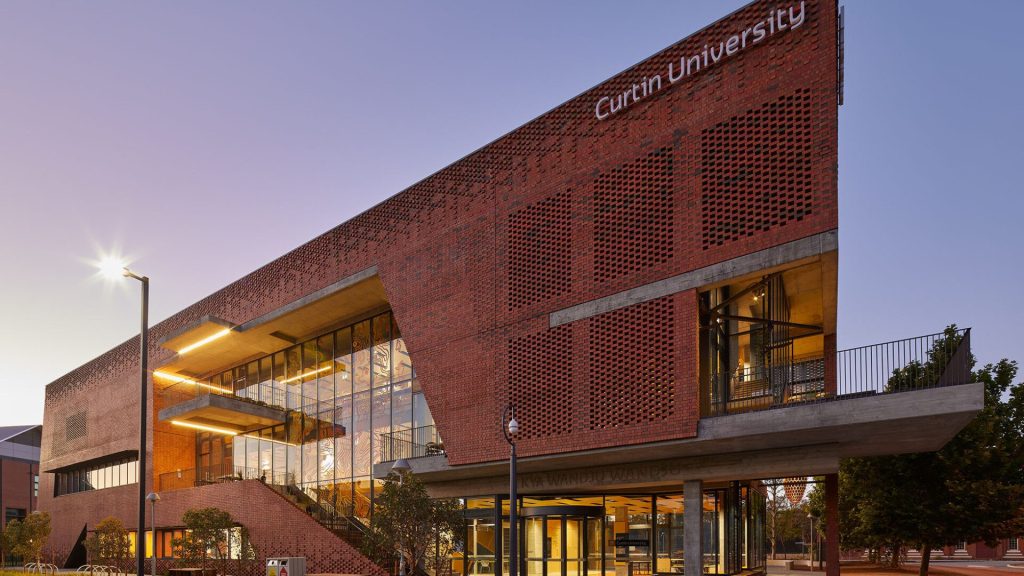
Curtin University is a distinguished public research university which was inaugurated in 1966. Curtin University is a reputable study destination, noting their ranks in the top 15 among universities in Australia for the year 2024 as well as their globally recognised innovative courses and programmes.
For the Engineering and Technology subject in 2024, Curtin University is placed in the top 15 amongst Australian Universities. Prospective students benefit from accredited Engineering syllabuses, enviable suite of facilities, industry opportunities, comparatively affordable fee for quality education alongside the liberty of choosing from ten Engineering majors.
Programme Offered | Bachelor of Engineering (Honours) Major Options:
|
Duration | 4 Years |
Intake | February, July |
Indicative Fees (2024) | International Students: AU$150,029 |
Contact us right now for a free consultation if you’d like more details about the costs, the format of the programme, and the entry requirements!
For more information regarding the university, programme offered, entry requirements and fees, contact Excel Education.
About The Author

Hannah Hir
Hannah appreciates various art forms, especially Asian literature, film and music. Most of her favorite Malaysian kuihs are green-coloured.

